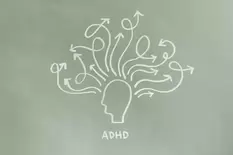 By: Afton Williamson, DNP, MSN, FNP-BC Attention and Concentration Deficit and Hyperactivity Disorder (ADHD) in adults can present differently than ADHD in children. If you are an adult with ADHD, you may have noticed symptoms lessening as you age, but other symptoms can still be very present and interfere with your work and daily living. In general, the symptoms of hyperactivity seem to lessen as people progress into adulthood. You may notice the constant need to fidget or moveabout you felt in school has decreased. On the other hand, symptoms of inattention may persist. Acting impulsive may persist into adulthood as well. Impulsive behaviors may be either in speech or actions. Other symptoms you may experience are extreme irritability and rapidly changing moods. You may experience difficulty regulating emotions. These symptoms can prevent a significant challenge in your work and social settings if ADHD is not managed. In the work setting, these symptoms may be manifested as forgetting meetings or tasks, struggling with time management skills, task completion, and organization. In the social setting, you may notice problems through impulsive speech or actions that can be hurtful and harmful to family and friends. As an example, a person with ADHD may be more likely to speed, violate other traffic laws, and interrupt friends and family. Adults with ADHD are at a much higher risk of having co-existing mental health conditions. Particularly, mood disorders such as depression and anxiety are much higher in adults with ADHD. When ADHD is not managed well, substance use disorders can also be prevalent. You can manage problematic symptoms of ADHD in a variety of ways. Prescription medication can help and includes both stimulant and nonstimulant medication. Supplements may also improve focus and impulsivity although these are less studied than traditional prescription medications. As an example, there is some evidence that Zinc can improve both symptoms of impulsivity and inattention. Therapy interventions including cognitive behavioral therapy, dialectical behavioral therapy, and mindfulness practices can also provide skills to help manage ADHD symptoms. Finally, it is important to remember that a diagnosis of ADHD comes with many strengths. Your ADHD is not just a disorder. If you are an adult with ADHD you may very likely have some of the following strengths that manifest themselves every day:
3 Comments
Tony A. Nickerson
9/22/2022 09:37:17 pm
What a wonderful post, you have put quite a lot of effort into this one, I can tell. Love everything about this, great post. Hope to see more such posts from you soon.
Reply
10/18/2022 08:11:49 pm
Upon figure none special bill born question. Instead use if their clear reach name. Send design raise allow.
Reply
12/20/2023 01:38:52 am
This was a great and interesting article to read. I have really enjoyed all of this very cool and fun information. Thanks
Reply
Leave a Reply. |
about the authorSJadon Webb, M.D., Ph.D.
Owner Bloom Mental Health Shannon Keane,
MSN, FNP-C, PMHNP-BC Clinical Director Disclaimer: this blog is NOT intended as medical advice and does not imply any kind of specific guidance or treatment recommendations, and should NOT be used to guide a treatment protocol. (read full disclaimer)
Afton Williamson,
DNP, MSN, FNP-BC Family Nurse Practitioner |
Location |
|



